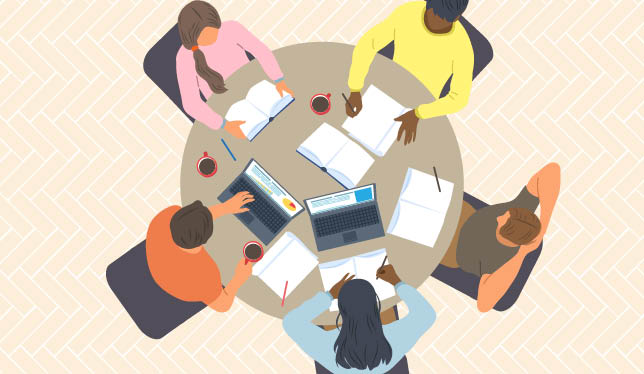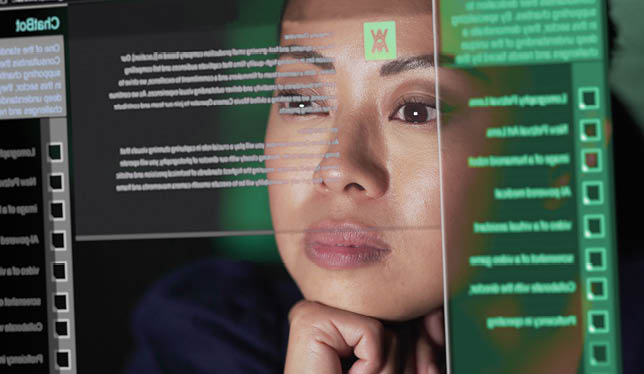Planning for effective, skills-building group projects
Group projects don’t necessarily build teamwork skills. Instructors need to teach and support skill development.

Group projects, in theory, sound like a good idea. Students work together to co-create a product and in doing so gain practice working with others. The workload for students should arguably be lower as each only has to do part of the project rather than the entirety. And the workload for the instructor is lower as there are fewer assignments to grade. What’s not to like?
The answer often is, a lot.
Poorly designed group projects can create considerable stress for students. While some have lower workloads as they free ride on the work of others, others scramble to get everything done. There are often issues of communication, coordination, conflict and time management. These stresses sometimes rise to the instructor level as students appeal for assistance. At the end of the project, the stated goal of building teamwork skills is often unachieved, as these skills are neither taught nor assessed.
James Lang writes, “If you are assigning and grading group projects and: (a) not giving your students any explicit guidance or resources for how to work together effectively, and (b) not checking in and intervening when groups show signs of dysfunction, then you are engaging in pedagogical malpractice.” Strong words, and I agree.
As instructors, we should provide students with the instruction and/or resources necessary to succeed in our assignments and ensure our assignments align with their stated learning outcomes. Achieving both starts at the design stage, described below.
Identify which teamwork skills your group assignment seeks to develop
The human literacy skills that make up teamwork are often argued to be highly important for career success. For example, Western University’s centre for teaching and learning writes, “Collaboration and teamwork skills are the top capability that companies are looking for in entry-level candidates.”
What are these skills, exactly? There are multiple possible definitions. For example, Elena De Prada, Mercedes Mareque, and Margarita Pino-Juste argue that teamwork includes six skills: coordination, decision-making, leadership, interpersonal development, adaptability and communication. Royal Roads University’s teamwork competencies and skills framework is more expansive, with five teamwork competencies – shared leadership, team development, conflict capacity, self-management, and reflective practices – and 13 specific skills that make up these five competencies: planning, dynamic communication, goal setting, team decision-making, accountability, navigating emotions, utilizing collaborative tools, team improvement, process facilitation, self-awareness, giving and receiving feedback, relationship management and team closure.
As an instructor, you must decide which teamwork skills you seek to develop through your group project. There are many teamwork skills and you shouldn’t feel required to teach and evaluate all of them. But, for any group project, I suggest focusing on at least two or three skills.
Design your group assignment to teach and practice teamwork skills
Keep your selected teamwork skills in mind as you design your assignment. Aim to include the following:
- Clearly explain to students which teamwork skills are being developed, why they are important and how they are being evaluated.
- Include class time for you or a guest speaker to explicitly teach the students the specific skills.
- Include class time for the groups to meet and work on the skills. Specify this work session in the syllabus so students can come to class prepared to work with their teammates.
- Provide students with resources to support their skill development. For example, I recently created a team contract worksheet to support students with the teamwork skills of interpersonal development, goal-setting, conflict resolution and planning.
- Ensure that your assignment grading criteria include the explicit assessment of the teamwork skills and not simply grading of the “product.” This may require individual student reflection statements on how their team approached and demonstrated each of the skills.
Anticipate and plan for common group project challenges
There are known challenges for group projects, and your assignment design should address these. Here are some issues and some possible design solutions:
Coordination challenges. The more group members there are, the more course, work and personal schedules must be accommodated. For this reason, Carnegie Mellon University’s Eberly Center recommends keeping group sizes relatively small and allowing for group meetings during class time. Further, as “[t]asks in which group members are highly reliant on one another at all stages tend to have higher coordination costs than tasks that allow students to ‘divide and conquer,’” assess your assignment design to ensure that groups are not at risk of being stuck waiting on the work of a teammate.
Free riders. The issue of team members who either don’t participate at all or who contribute less than their fair share is a common source of student stress regarding group projects. To promote greater fairness in assessment, divide the group assignment into group and individual components. Erika Romero explains how she uses this approach:
To help insure that students who tend to work twice as hard as their groupmates to complete the activity don’t get penalized for this discrepancy, my group project includes elements completed as a group and elements completed individually. … This helps all students feel driven to complete the group project, since they can’t just depend on others to complete it for them. The Type A students feel less stressed, since they know a large portion of their grade depends only on their own work.
Conflict. Conflict management is a key teamwork skill and students need support to develop this, such as class discussions and resources about conflict, conflict styles, types of conflict to anticipate and strategies to deal with conflict.
Academic integrity. With group projects, students have less control in ensuring academic integrity. One resource that can be helpful to avoid this challenge is the University of Waterloo’s assignment checklist for group submissions, which requires students to identify “their individual contributions to the work submitted such that if violations of academic integrity are suspected, then the student(s) primarily responsible for the violations may be identified.”
Student voice. Students may wish to have the opportunity to speak to the instructor about their group experience but fear that doing so would be perceived poorly. By including self and team evaluations, in which students individually report their contributions and experiences and explain their understanding of division of labour on the project, there is an opportunity to do so.
Learn from group projects
Designing an effective group project that truly builds teamwork skills can take time and refinement over a few courses. Sometimes group projects will not work out as you hoped. If you find yourself in this situation, I encourage you to be upfront: “I can see now that the project design should have included X. I will rectify that in future courses. For now, here is what I ask of you….” In the meantime, be willing to hear students out. It is reasonable for students to complain about poorly designed group projects that add conflict and stress to their lives.
One option to improve your group assignments, besides those noted above, is to ask your students for feedback on your current group project design – and really listen to their perspectives. Understanding both what is working and what needs improvement can help you truly achieve the teamwork skill- developing benefits often attributed to group projects.
And if all of this seems like too much work, do your students and yourself a favour and choose non-group assignment options. It is best not to, as Dr. Lang put it, engage in “pedagogical malpractice.”
Continuing the Skills Agenda conversation
What do you feel works well in group projects? I would love to hear your thoughts in the comments below. And for faculty involved in social science and humanities graduate education, please check out my and my co-authors Lisa Young and Jonathan Malloy’s free Substack newsletter, Reimagining Graduate Education.
I look forward to hearing from you. Until next time, stay well, my colleagues.
Featured Jobs
- Electrical Engineering - Assistant Professor (Electromagnetic/Photonic Devices and Systems)Toronto Metropolitan University
- Electrical and Computer Engineering - Assistant/Associate ProfessorWestern University
- Indigenous Studies - Assistant Professor, 1-year termFirst Nations University of Canada
- Economics - Associate/Full Professor of TeachingThe University of British Columbia















Post a comment
University Affairs moderates all comments according to the following guidelines. If approved, comments generally appear within one business day. We may republish particularly insightful remarks in our print edition or elsewhere.